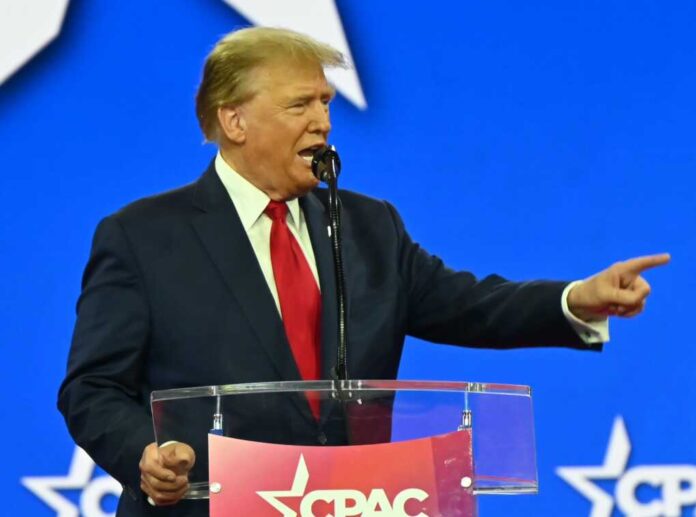
Donald Trump is calling for mandatory prison time for flag-burning protesters, igniting backlash from legal scholars and divisions within his own party.
At a Glance
- Trump proposed a one-year prison sentence for anyone who burns the American flag during protests
- His comments followed a protest in Los Angeles involving ICE and National Guard deployment
- The Supreme Court has repeatedly ruled flag burning is protected under the First Amendment
- Some GOP members reject the proposal as unconstitutional and politically toxic
- Trump also floated criminal liability for California Gov. Gavin Newsom over protest handling
A Familiar Flashpoint
Donald Trump is again wading into First Amendment territory, this time calling for one-year jail terms for anyone who burns the American flag. In an interview on Miranda Devine’s podcast, Trump tied his demand to recent unrest in Los Angeles, where anti-ICE protests led to National Guard deployments and over 100 arrests.
“It should be automatic,” Trump said. “You burn the American flag, you go to jail for one year.” He also suggested that California Gov. Gavin Newsom could theoretically be charged for failing to manage the situation—though he acknowledged it was unlikely.
Watch a report: Trump Wants Prison Time for Flag Burners.
Legal Walls and Political Fissures
But legal experts say Trump’s proposal would run headfirst into decades of constitutional precedent. In the 1989 landmark ruling Texas v. Johnson, the Supreme Court affirmed flag burning as protected speech, rendering any such law instantly challengeable. A similar attempt in the 1990s, the Flag Protection Act, was struck down for the same reason.
Even within Trump’s party, reaction has been mixed. Some Republicans have called the proposal an “easy no,” citing the high legal bar and political liability. Others, like Sen. Josh Hawley, have echoed Trump’s sentiment, arguing that flag desecration undermines national unity and should be met with forceful consequences.
A Symbolic Line in the Sand
This isn’t the first time Trump has proposed criminal penalties for flag burning; he made similar calls during his presidency. What’s different now is the context—growing campus protests, escalating immigration debates, and a looming election cycle.
To enforce his proposal, Trump would need more than political momentum—he’d need a constitutional amendment or a Supreme Court reversal. For now, his comments serve more as a litmus test: for Republican unity, public sentiment, and the limits of patriotic legislation in a divided America.





























